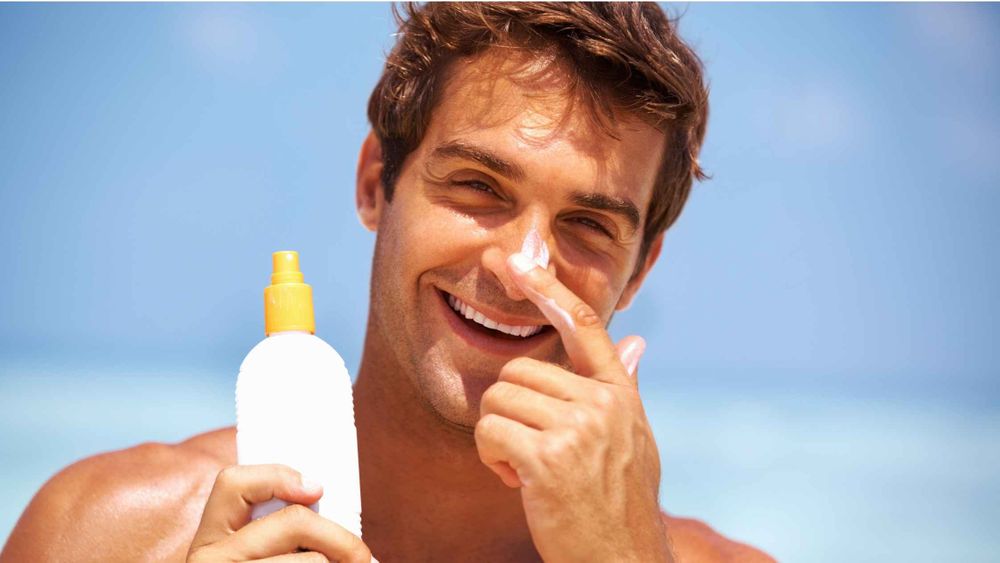Does Sunscreen Cause Acne?

Puberty isn’t the only thing that can make you break out in zits. Stress can negatively impact your hormones, and your diet plays a major role, too.
It’s only natural to wonder what else you’re putting on your skin that could ruin future photos. Since sunscreen tends to be oily, many people are right to question its contribution to your skin’s overall health.
Can Sunscreen Cause Acne?
Yes, certain types of sunscreen can lead to breakouts. However, that doesn’t mean you should skip it.
It’s paramount to care for your skin, and that means adequate protection against UV rays.
While you shouldn’t skip sunscreen, you should at least be aware of what specific ones can do to your skin.
Depending on what’s in the sunscreen, it can clog pores, leading to acne.
The problem becomes compounded when you forget to cleanse your face at the end of the day, forcing you to go to sleep with oily pores.
So what exactly do you need to look out for when you head to CVS to buy another bottle of sunscreen?
What Ingredients in Sunscreen May Cause Acne?

Similar to how you should read the ingredient list of everything you eat, you also want to check what’s in your sunscreen.
Some contain dangerous chemicals that can create zits, especially if you already have acne-prone skin.
Some of the substances you should steer clear of include:
- Avobenzones
- Benzophenones
- Methoxycinnamate
- Oxyphenones
- Para-aminobenzoic acid
In case that’s too much to keep track of, you should find a sunscreen labeled as “non-comedogenic.”
That basically means the product contains materials that won’t clog your pores.
In case you need further incentive to avoid these ingredients, you should know that Hawaii became the first state to ban them from sunscreens sold in 2018.
This is largely due to the chemicals’ impact on the coral reef systems, but it further proves just how detrimental these products can be.
Should You Skip Using Sunscreen?
It may seem easier to give up sunscreen than your daily cup of coffee when it comes to fighting acne. However, you shouldn’t give up the sunblock.
It’s vital to protect your skin. UV rays can result in sunburn and potentially even skin cancer over time.
As one of the leading providers for men's skincare, we highly stress using sunscreen every time you leave the house.
Prolonged time in the sun can prematurely age you, leading in dark spots, fine lines, and wrinkles.
If you're already dealing with issues such as dark spots and wrinkles, we've built together a skincare kit that can revitalize your look.
Health Benefits of Sunscreen

As long as you use the right kind, sunscreen can help with acne. Constant UV exposure can harm your skin’s natural barrier.
This leads to your pores drying up and your skin producing an excess of oil.
This enhanced oil production subsequently leads to further pimples down the road.
Not only that but if you already suffer from a skin condition like rosacea, then a sunburn can worsen that on top of increasing your risk of acne.
That’s not even mentioning acne scars. A sunburn can worsen scars’ appearances, making it more prominent.
It also makes it more difficult for the skin to heal.
How to Choose the Best Sunscreen for Your Skin
Now that you know what ingredients to avoid, there are still a few factors to look into to both lower your risk of acne and getting a sunburn.
First and foremost, you need to consider the Sun Protection Factor (SPF). Honestly, you only need an SPF of at least 30.
There are some that go up to 100, but it only provides a marginal level of greater protection.
The American Dermatology Association also recommends a “broad-spectrum” product. This is a sunblock that safeguards against both UVA and UVB light.
UVA rays cause wrinkles, while UVB light is the spectrum that’s ultimately responsible for making your skin red from sunburn.
Some only protect against one or the other.
If you’re prone to acne, sunscreen is the least of your worries.
Find one that works for your skin so that you feel compelled to use it every single day before you head outside.
Saunders, Nicole. “11 best sunscreens for acne-prone skin of 2020.” NBC News, 6 Jul. 2020. https://www.nbcnews.com/shopping/skin-care/best-sunscreen-acne-n1232737
Quinn, Daley. “Chemical vs. Physical Sunscreen; What’s Right for You.” Sunday Edit, 1 May 2019. https://edit.sundayriley.com/chemical-vs-physical-sunscreen/
Heiser, Christina. “How to choose the best sunscreen, according to these dermatologists.” NBC News, 11 May 2019. https://www.nbcnews.com/better/lifestyle/how-choose-best-sunscreen-according-these-dermatologists-ncna1002451


Leave a Comment